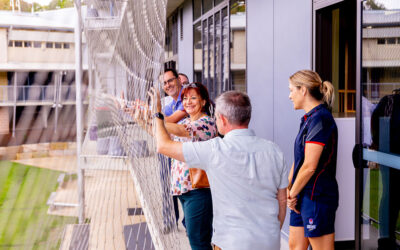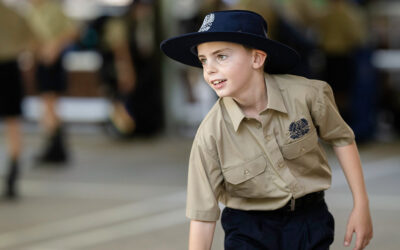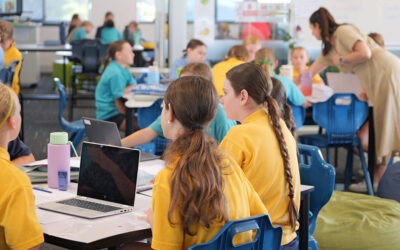The transition to high school is both exciting and daunting for many children. Parents can help their children meet this educational milestone with these tips for starting high school.
Most students thrive in the new environment and the varied experiences that secondary school offers. However, some students find starting high school and the move from the familiar to the less familiar to be challenging.
The transition to high school happens alongside the transition from childhood to adolescence and includes many changes, both physically and emotionally.
Starting high school may result in some uncertainty and even a sense of loss where students may have had leadership roles as the most senior students in the primary school and now find themselves as the most junior members of the secondary school.
For many students, starting high school can mean developing new ways of learning. Students are expected to be:
- Responsible for their learning
- Managers of their own time
- Independent learners
- Self motivated
Here are some common questions that students have about the transition to high school, along with positive tips for how you can assist your child:
How can I find my way around a bigger campus?
Ask what assistance the school provides to helpyour child transition to high school – for example transition day, orientation day or buddy program.
Help your child review any orientation material provided by the school – this may include simple but important information such as the location of the toilets.
How can I be more organised and plan ahead for starting high school?
Make sure you know the school’s key dates – usually these are made available online or in a regular newsletter. (Make sure the school has your up-to-date contact details.)
Make sure your child is organised before the first day in their new school – uniform, school bag, books, etc. should be ready at least the day before to alleviate any rush or panic on the morning of the first day.
Encourage your child to wear their new school shoes around the house to make sure they are comfortable. Sore feet on the first day will detract from the positives.
Learn about school routines – school start and finish times, recess and lunchtime.
Have an emergency safety plan. Be clear about who your child should contact and what you expect them to do in an emergency.
How can I get to school and class in plenty of time?
Learn about travel to school. Make a plan around the public transport timetable. Have a backup plan in case they miss public transport. If you plan to drive your child to school, do a trial drop off and pick up, and check for parking. Allow extra time on the first day.
Talk to your child about their timetable, including subjects and classrooms. Make a few copies of the timetable to keep in different places. Encourage your child to think ahead.
How can I cope with an increased workload?
Make sure your child gets enough sleep.
Create a consistent homework routine.
Create a comfortable place for your child to study. This should be a quiet place away from distractions.
As parents, the best thing we can do for our child is to be positive and enthusiastic.
If your child feels nervous about starting high school, remind them this is completely normal. These nerves may last past the first day. Encourage your child to talk about what they might be worried about.
How will I make new friends?
Encourage your child to be friendly and discuss what it means to be a good friend.
Prior to school commencing, organise a get-together with other students going into Year 7.
Support your child by encouraging them to get involved in extra-curricular activities, leadership roles, house activities and community service.
Talk to your child about peer group pressure.
Encourage your child to keep in touch with their primary school friends. It helps to be able to share and talk through experiences.
STUDENT TIPS
“Never give up. Try your hardest. Give everything a go. Be organised.”
“Put yourself out there and don’t be afraid to speak up.”
“Stay on top of your work, don’t leave it to the last minute.”
“Be organised. Have a diary. Be positive!”
By Tracey Maynard, Head of Junior School, St Hilda’s School
Related Stories
The Gold Coast girls designing a city for the future
The STEAM program preparing junior girls for the future


